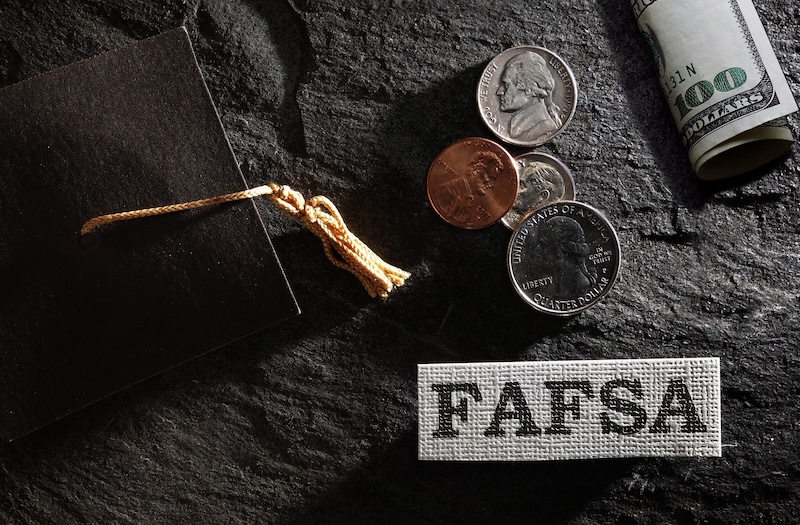Anyone who knows me, knows I’m usually a pretty upbeat guy. I like to have fun with these blog posts, even when the subject matter is fairly serious.
Today’s post is different. Bottom line, financial elder abuse doesn’t lend itself to levity. But it’s so important – and so important to talk about – I’m going to break from my usual jocularity to discuss what financial elder abuse looks like, and what you can do to prevent you or your loved ones from falling prey to it.
A Personal Tale of Elder Abuse
Before you decide the subject doesn’t apply to you, let me share a personal tale that shows you just never know.
Like most other families, mine had “Uncle Jim,” my great uncle on my mother’s side. Jim was well loved, and well known for his frugality. We would joke about how he probably still had his first communion money stashed away with his other earnings.
A life-long bachelor, Jim lived much of his life in the U.S., returning to his native Ireland in retirement. While we didn’t see him as often after that, we were lucky that a loyal family member “Tom” was there to take excellent care of Jim when his mental capacities began to deteriorate.
Or at least we thought we were lucky. When Jim passed, Tom and the rest of us were in for a nasty surprise: Jim’s will left his entire estate to a distant family member who had visited him but once in many years – not-so-coincidentally on a weekend when Tom was out of town. During this single visit, our rogue relative had conspired with an unscrupulous attorney. They took advantage of Jim’s dementia and Tom’s absence to sabotage Jim’s original intent to leave his estate to his siblings’ families (including my mother).
The Many Faces of Financial Elder Abuse
As a wealth manager, I have conversations with all sorts of families who are facing the need to care for their aging parents or are preparing for their own elder years. My family’s tale illustrates, even if you have nothing but the best intentions, nobody can be there for someone else 24×7. So, as we plan for the payments and processes involved in financial and estate planning, I also like to go over ways to watch out for financial elder abuse – or the unauthorized use of an elderly person’s belongings.
In addition to the estate planning trickery I described above, some of the ways elder abuse can play out include:
- Exploiting a victim’s personal checks, credit cards or financial accounts
- Stealing cash, income checks, or household goods
- Forging their signature
- Obtaining loans or lines of credit in the victim’s name
- Engaging in identity theft
- Perpetrating any number of tax scams, such as this dirty dozen described by the IRS
- Playing additional sorts of cons on unwary victims
An Ugly List of Cons and Scams
Unfortunately, there are enough cons and scams to warrant a blog post on this subject alone. In general, con artists prey on your emotions – fear, love, sympathy, excitement. They also often pressure you to act immediately, before you’ve had time to verify their claims. Before you realize it, you’ve divulged your Social Security number, made financial payments, signed away your rights, or otherwise gotten “taken.” Here are a few of the most frequent scams and cons:
- Prize scams — Someone will call and excitedly announce a “prize” you’ve just won … but they’ll need your credit card number for you to claim it.
- Bogus IRS agent scam – You receive a call from someone claiming to be an IRS or law enforcement agent, threatening you with fines or imprisonment if you don’t immediately cooperate.
- “Emergency” scams – “Hello, grandma? I’m stuck in Tiajuana. Help!” Con artists (who already have extracted personal information from you via phishing) pose as injured or imprisoned family members in far-away places; they scare you into wiring money to them.
- Fake charities – Playing on your sympathy, a fake charity with a name similar to a legitimate organization extracts “donations” from you.
- Tech support scams – You receive a call from “tech support” alerting you that your computer has been compromised. They ask for your login information so they can fix it fast, before any harm is done. Unfortunately, the fix is the harm; you’ve just given your login to an identity thief.
- Romance scams – This one is perhaps the saddest of all. On phone or in person, con artists will take advantage of single older adults by befriending them, sometimes even dating or marrying them, with the ultimate intent of stealing way more than just their hearts.
Who Is Most Vulnerable?
These and many other forms of financial abuse can be perpetrated on anyone, at any age, but criminals do tend to target older adults for a number of reasons. The National Center on Elder Abuse (NCEA) suggests that, “Women appear to be more likely to be abused than men.” If nothing else, women tend to outlive men, eventually ending up on their own or cared for by individuals they may not know all that well.
In addition, the most vulnerable among us include those who:
- Have diminished capacity due to illness or injury – They may be pressured to sign documents they barely understand.
- Are experiencing Alzheimer’s or other forms of dementia – They may not remember their own or their caregivers’ actions.
- Are feeling bored, lonely or isolated – Lonely retirees or those who have recently experienced a loss are especially at risk for being preyed on by strangers, acquaintances or even relatives whose relationships they value.
- Tend to be impulsive – As this AARP article “Protect Parents from Scams” points out, quick-thinking type A personalities may leap before they look at a scam.
- Have reared financially dependent children – Some children see no issues with hitting up their parents’ assets for their own expenses or excesses.
- Aren’t fluent in English – They may be asked to sign or agree to contracts, credit agreements or other legal documents they can’t really read.
- Are difficult to get along with – Unfortunately, dementia and other illnesses can alter a loved one’s personality – not always for the better. A caregiver’s or service provider’s patience may be stretched to the limits by an older adult who becomes mean, abusive or paranoid.
Who Is Committing Elder Abuse?
You might assume that most financial elder abuse is perpetrated by unknown criminals such as con artists or identity thieves. But the reality is, an uncomfortably significant chunk of financial elder abuse also is committed by familiars. Bottom line, the abuse can come from just about anyone:
- Professional or volunteer caregivers
- Children (especially overly dependent ones), spouses and extended family members (especially those who suffer addictions)
- Friends and neighbors
- Allegedly trusted advisors (I’m sorry to say)
- Total strangers …
The list is endless. To offer some red flags to look for, the National Center on Elder Abuse describes that, “Perpetrators are most likely to be adult children or spouses, more likely to be male, to have history of past or current substance abuse, to have mental or physical health problems, to have history of trouble with the police, to be socially isolated, to be unemployed or have financial problems, and to be experiencing major stress.”
How to Identify Potential Abuse
Given the range of potential abusers and abuses, it’s worth keeping an eye on the warning signs that financial elder abuse might be taking place. The National Council for Aging Care’s offers this helpful list of key indicators, such as if your parent suddenly has a new “best friend,” there are unexplained transactions on her financial statements (or statements are missing entirely), or bills are going unpaid.
In considering its list, the NCPEA advises (emphasis mine): “Indicators are signs or clues that abuse has occurred. Some of the indicators listed … can be explained by other causes or factors and no single indicator can be taken as conclusive proof. Rather, one should look for patterns or clusters of indicators that suggest a problem.”
Preventing Financial Elder Abuse
Of course even better than detecting financial elder abuse is preventing it to begin with. Whenever possible, employ checks and balances to prevent any one person from gaining too much power over a vulnerable older adult’s financial well-being.
- If you’re the adult child of an aging parent, I recommend revisiting the aforementioned AARP article, “Protect Parents from Scams.” Lots of good tips there.
- Family members can hold quick monthly meetings on behalf of an aging relative to go over his or her personal finances and likewise be on the look-out for signs of trouble.
- If you’re a senior and have entrusted your financial matters to someone else, consider hiring a neutral third party – such as a member of the American Association of Daily Money Managers – to monitor your bank accounts and credit requests and alert you if something “smells fishy.” A trusted financial advisor may also be able to offer objective second opinions and reputable service provider referrals.
- It’s a good idea to prepare financial powers of attorney for the people you trust the most, so they can act as decision-makers for you should the need arise. But I recommend working with an attorney when creating them, since powers of attorney can be powerful instruments that have their own risks in the wrong hands.
Taking Action
What if you or someone you know is experiencing financial elder abuse? It depends on the nature of the abuse, but here are a few starting points:
- Consider contacting the U.S. Department of Health and Human Services’ Administration on Aging (AoA). This is the federal agency responsible for upholding the rights and safety of the elderly and their caregivers.
- Build a united front by calling a family meeting, including your family’s financial advisor, accountant, and estate planning attorney. Additional counsel such as a family therapist or minister may also be part of “the team.”
- If you or a loved one has become a victim of identity theft, the Federal Trade Commission has published “Taking Charge: What To Do If Your Identity Is Stolen,” to walk you through your next steps.
How Can We Help?
Whether you’re growing older yourself or you are the son or daughter of an aging parent, it’s hard to imagine a day might come when we who have spent a lifetime protecting others may someday need protection ourselves. And whether it happens overnight or over time, it’s a hard role to accept. Please let me know if I or any of us here at The Cogent Advisor can offer additional ideas to assist you and your family in preventing financial elder abuse from entering your lives.
START REACHING YOUR GOALS WITH A COMPLIMENTARY PHONE CONVERSATION


